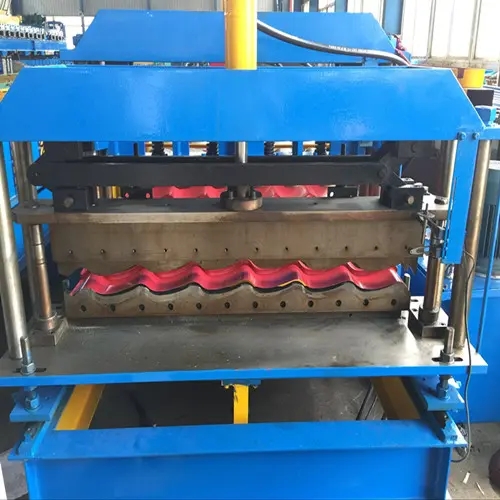
The Importance of a Roof Tile Production Line
Roof tiles have been an integral part of architecture for centuries, providing both aesthetic appeal and functional protection against the elements. As the demand for quality roofing materials increases, the roof tile production line has become a critical component in the manufacturing industry. This article explores the various aspects of a roof tile production line, its processes, and the significance it holds in today's construction landscape.
A roof tile production line typically involves several stages, each essential in transforming raw materials into finished roofing products. The primary materials used in roof tile production include clay, concrete, and sometimes natural slate. The selection of raw materials greatly influences the quality, durability, and appearance of the final product.
The production process begins with the preparation of raw materials. For clay tiles, the clay is mined, crushed, and mixed to achieve the desired consistency. In the case of concrete tiles, sand, cement, and aggregates are proportioned according to the required specifications. Once prepared, the mixture is shaped into tiles using molds. This shaping process can involve various techniques, including extrusion and pressing.
After shaping, tiles undergo a drying process to remove excess moisture. For clay tiles, this is a crucial step as it prevents cracking during firing. Once dried, the tiles are subjected to firing in a kiln. This high-temperature process not only hardens the tiles but also enhances their color and finish. For concrete tiles, curing methods may vary, with some utilizing steam curing to accelerate the hardening process.

Following firing or curing, the tiles are subjected to quality control tests. This stage ensures that the tiles meet industry standards in terms of durability, water resistance, and aesthetic qualities. Any defective tiles are removed from the batch, ensuring that only the highest quality products reach the market.
Once quality assurance is completed, the roof tiles are packaged and prepared for distribution. Efficient packaging is vital to prevent damage during transportation, ensuring that the tiles arrive at construction sites in excellent condition. The entire production line is designed to maximize efficiency, reduce waste, and maintain high-quality output, ultimately contributing to the sustainability of the roofing industry.
The significance of a well-functioning roof tile production line cannot be overstated. As the construction industry grows, there is an increasing need for reliable and aesthetically pleasing roofing materials. A streamlined production line not only meets this demand but also encourages innovation in design and materials. Furthermore, advancements in production technology have led to more environmentally friendly processes, helping to reduce the ecological footprint of manufacturing.
In conclusion, the roof tile production line plays a vital role in the building materials industry, transforming basic raw materials into essential roofing solutions. Its efficiency, quality control measures, and technological advancements are fundamental to meeting the growing demand for durable and attractive roof tiles, thereby supporting the overall growth of the construction sector.